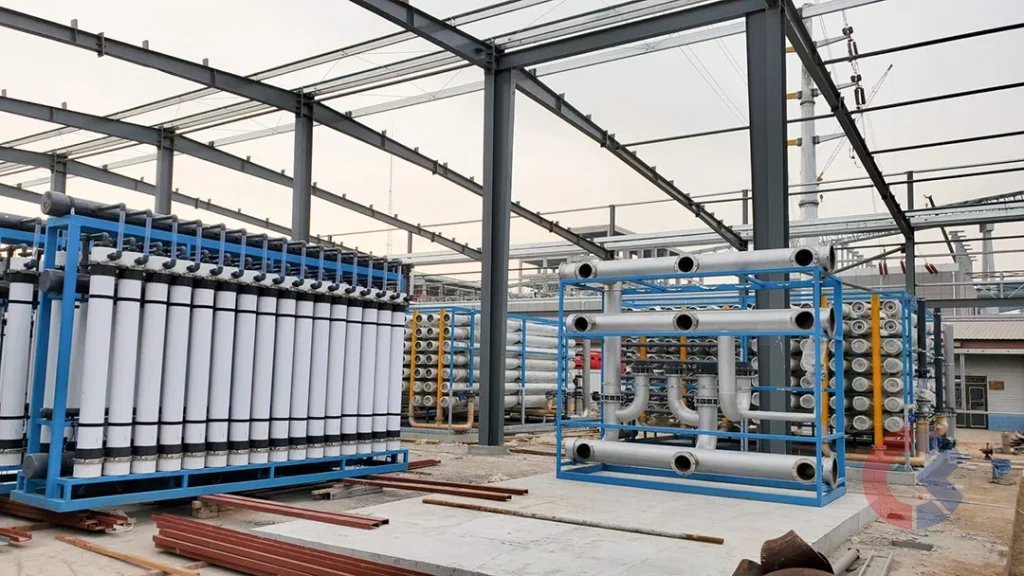
12,000T/H UF Systems + RO Systems
Project Address: Xi'an, China
Project Time: February 2022
Project Gallery
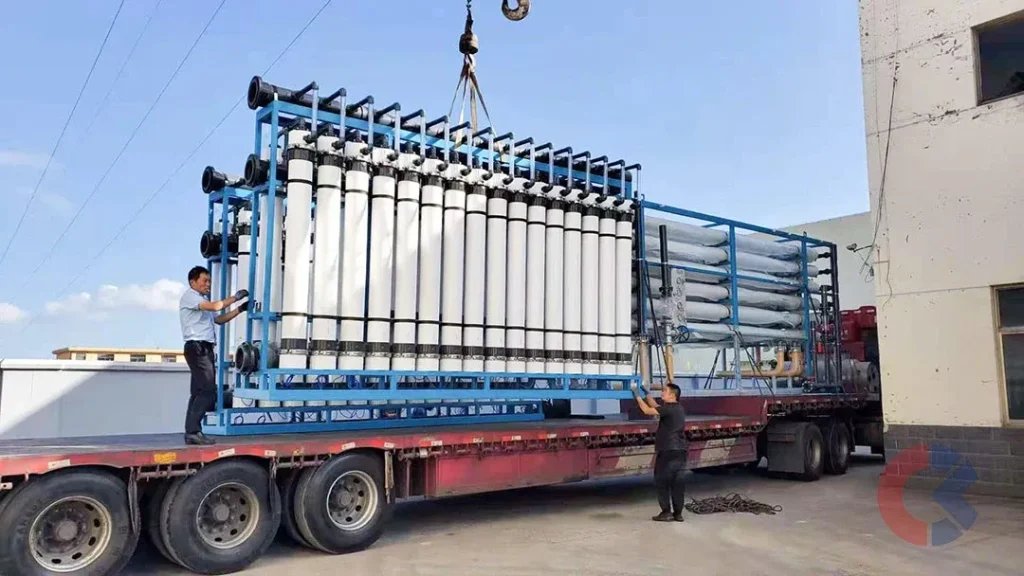
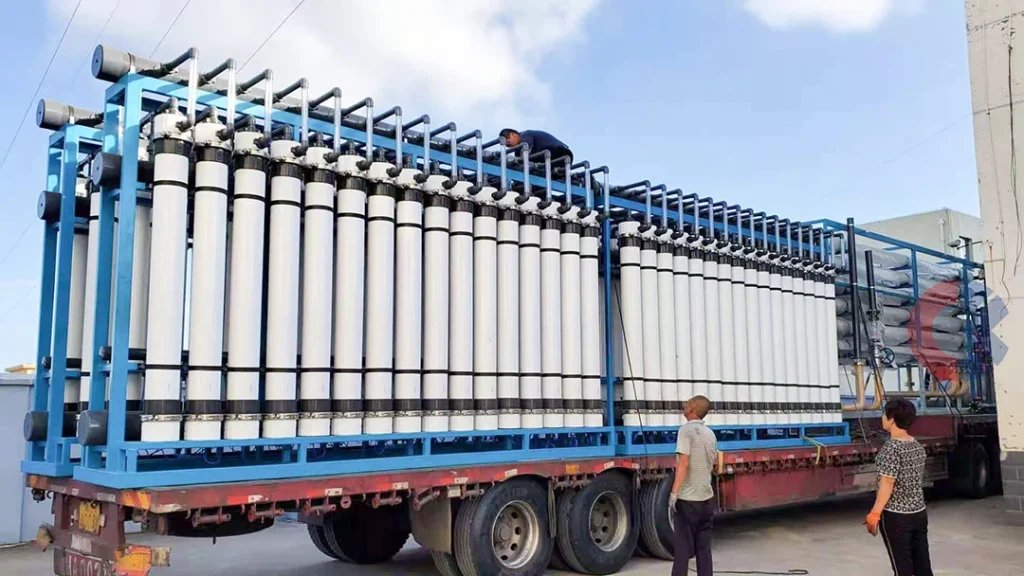
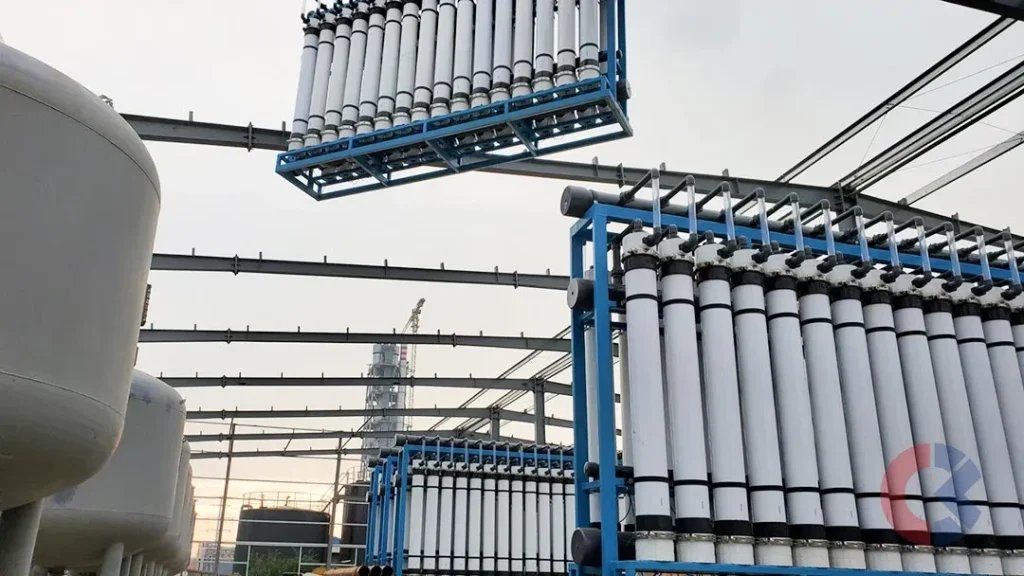
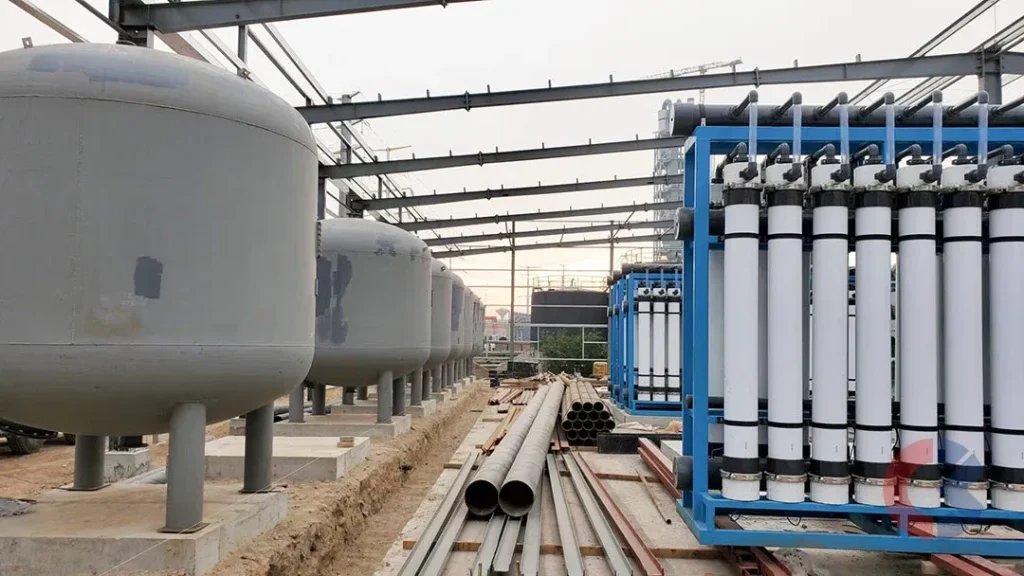
UF Systems + RO Systems Schematic Diagram
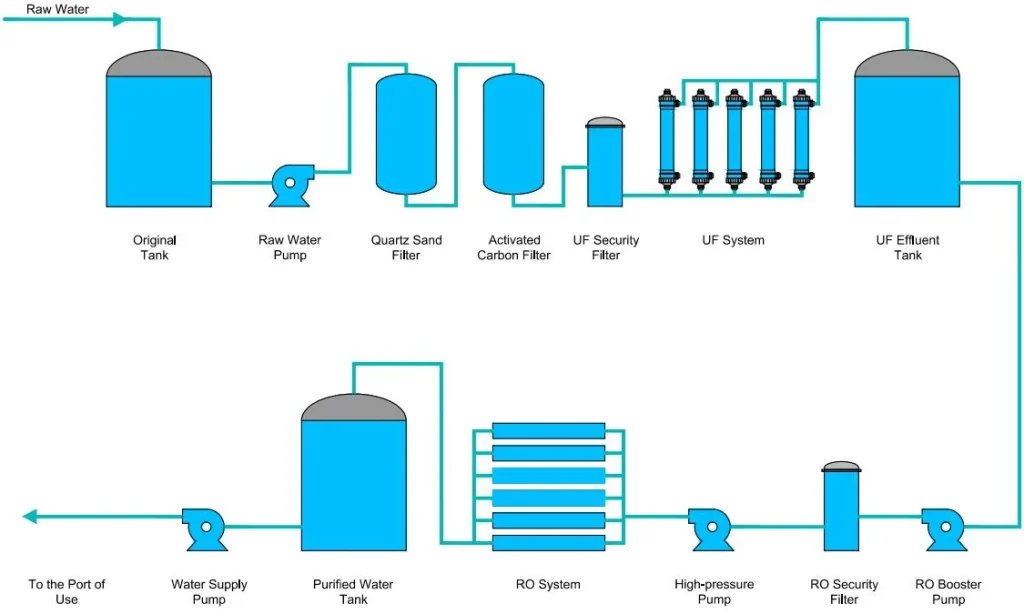
Overview
Ultrafiltration systems and reverse osmosis systems in water treatment are both advanced membrane separation technologies. They play different roles in the water purification process to meet different levels of water quality needs.
Ultrafiltration (UF) Systems
Ultrafiltration is a membrane separation process driven by pressure difference, and its core component is the ultrafiltration membrane. The pore size of ultrafiltration membranes is generally between 0.001 and 0.1 microns, which can effectively intercept pollutants such as suspended particles, bacteria, some viruses, macromolecular organic matter, and colloids in the water, while allowing water molecules and relatively small solutes to pass through.
Main Functions of Ultrafiltration Systems:
🔹 Clarification and Sterilization
- Effectively remove suspended solids and microorganisms (bacteria and some viruses)
- Improve water clarity and biological stability
🔹 Retention of Minerals
- Low rejection rate of inorganic salt ions
- Maintains certain proportion of minerals in treated water
- Suitable for drinking water with hardness and mineralization requirements
- Ideal for mineral water production
🔹 Pretreatment
- Used as pretreatment before RO systems or other precision membrane separation systems
- Removes particles and microorganisms that may block downstream equipment
- Protects normal operation of subsequent treatment stages
🔹 Concentration and Separation
- Industrial applications for concentrating specific macromolecular substances
- Suitable for proteins, enzymes, nucleic acids separation
Reverse Osmosis (RO) Systems
Reverse osmosis is a separation technology based on the principle of selective permeation of a semipermeable membrane. Its membrane pore size is smaller, usually around 0.0001 microns. Driven by pressure, the RO membrane only allows water molecules and very small molecular substances to pass through, while efficiently intercepting the vast majority of ions, organic matter, microorganisms, and particulate matter.
Main Functions of Reverse Osmosis Systems:
🔹 Deep Desalination
- Very high desalination rate
- Effectively removes most inorganic salts (including heavy metals)
- Removes dissolved organic matter and almost all microorganisms
- Suitable for preparing pure water, high-purity water, or ultra-pure water
- Applications: Electronics industry, pharmaceutical industry, laboratory water, power plant boiler feed water
🔹 Water Softening
- Removes hardness components (calcium and magnesium ions)
- Significantly reduces water hardness
- Prevents scale formation in pipes and heat exchangers
🔹 Drinking Water Purification
- Domestic and commercial drinking water purification
- Provides low TDS (Total Dissolved Solids) pure water
- Removes pollutants harmful to human health
🔹 Seawater Desalination
- Main technology for seawater desalination
- Converts high-salt seawater into fresh water
- Suitable for drinking or industrial use
Summary
Ultrafiltration Systems are primarily used to:
- Remove larger particles, microorganisms, and some organic matter
- Retain certain minerals
- Often used as pretreatment or for producing mineral-containing drinking water
Reverse Osmosis Systems provide:
- Higher level water purification
- Deep desalination and water softening
- Removal of almost all impurities
- Suitable for industries and applications with strict water quality requirements
Both technologies can be combined according to actual application needs to form an ultrafiltration-reverse osmosis composite system, optimizing the efficiency and effectiveness of the entire water treatment process.

